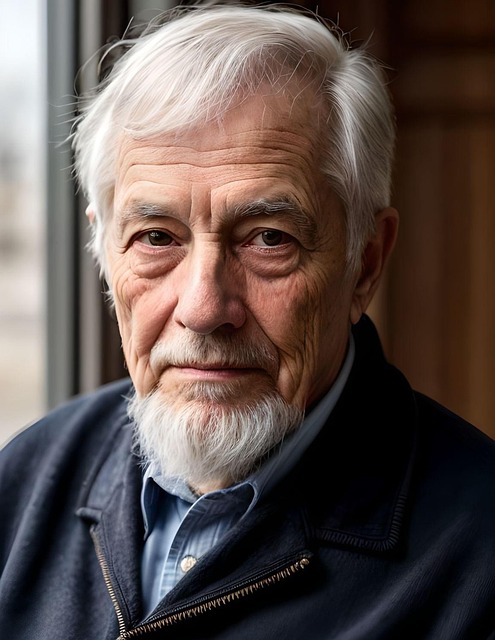End-of-life planning involves creating legal documents like living wills and healthcare directives to appoint a medical power of attorney. This process ensures individual control over medical decisions and eases emotional burdens on loved ones. Engaging an end-of-life attorney navigates legal complexities, integrates palliative care, hospice care, and advanced care directive provisions into a comprehensive plan. Additionally, it helps ensure medical directives are respected by healthcare providers. Key steps include updating important legal documents, exploring palliative and hospice care options, and designating an end-of-life attorney to uphold personal values and preferences for end-of-life care.
“Preparing for the future is a gift to oneself and one’s loved ones. Comprehensive end-of-life planning ensures your wishes are respected, and your family is guided during an emotional time. This article offers a holistic guide to navigating this important process. We’ll explore essential components like creating a living will and healthcare directives, engaging an end-of-life attorney, and understanding various types of end-of-life care, including palliative and hospice planning. By the end, you’ll be equipped with knowledge to make informed decisions and ensure your advanced care directive is legally sound.”
- Understanding End-of-Life Planning and Its Importance
- Creating a Living Will and Healthcare Directive
- Engaging an End-of-Life Attorney and Finalizing Medical Directives
- Exploring Palliative Care, Hospice Care, and Comprehensive End-of-Life Services
Understanding End-of-Life Planning and Its Importance

End-of-life planning is a crucial process that involves making important decisions about your future healthcare and personal affairs when you may no longer be able to do so. It’s a sensitive yet vital step in ensuring your wishes are respected and your autonomy maintained during what can be an uncertain time. This type of planning encompasses various aspects, including creating living wills, healthcare directives, and advanced care directives. These legal documents allow you to appoint a trusted individual as your medical power of attorney, who will make decisions on your behalf if you become incapacitated.
By proactively engaging in end-of-life care planning, individuals can choose the level of medical intervention they desire, explore options for palliative care, and even consider their wishes regarding hospice care. Consulting with an end-of-life attorney can help navigate the legal complexities involved, ensuring your medical directives are valid and respected by healthcare providers. This proactive approach not only eases emotional burdens on loved ones but also empowers individuals to have a say in their care and maintain some control over their final days.
Creating a Living Will and Healthcare Directive

Creating a Living Will and Healthcare Directive is a crucial step in end-of-life planning. These legal documents allow individuals to express their wishes regarding medical care and treatment, especially when they are unable to communicate or make decisions for themselves. A Living Will outlines specific medical treatments you do or do not want to receive during the end stages of life, while a Healthcare Directive appoints a trusted individual (often called a health care proxy) to make these decisions on your behalf. This ensures that your preferences are respected and provides clarity for healthcare providers, even in complex or challenging situations.
When drafting these important documents, it’s advisable to consult with an end-of-life attorney who can guide you through the legal process and ensure your directives align with local laws. They can also assist with integrating medical directives into a comprehensive end-of-life care plan that includes palliative care planning, hospice care planning, and other aspects of advanced care directive. This proactive approach ensures that you’re prepared for any eventuality while maintaining control over your healthcare choices.
Engaging an End-of-Life Attorney and Finalizing Medical Directives

Engaging an End-of-Life Attorney is a crucial step in comprehensive end-of-life planning. These legal professionals can provide invaluable guidance and support, ensuring your wishes are accurately documented and respected. They assist in creating or updating important documents like living wills, healthcare directives, and advanced care directives, which outline your preferences for medical treatment and end-of-life care. Having an end-of-life attorney ensures these legal documents are legally sound and enforceable, providing clarity during a time when families often face emotional turmoil.
In the process, they also help you explore various options for end-of-life care planning, including palliative care and hospice care. They can facilitate conversations with healthcare providers to ensure your medical power of attorney is in place, allowing someone you trust to make decisions on your behalf if you become unable to do so. This proactive approach ensures your autonomy and allows you to have a say in your end-of-life care, aligning with your personal values and wishes.
Exploring Palliative Care, Hospice Care, and Comprehensive End-of-Life Services

When contemplating end-of-life decisions, exploring palliative and hospice care options is a vital step in comprehensive planning. Palliative care focuses on providing relief from symptoms and improving quality of life for individuals facing serious illnesses. This approach aims to support patients and their families emotionally, spiritually, and practically throughout the entire process. By integrating palliative care early, individuals can ensure their wishes are respected while receiving compassionate assistance with managing pain, fatigue, and other symptoms.
Hospice care, a specialized service within end-of-life planning, offers comprehensive support for those in the final stages of incurable diseases. It involves a multidisciplinary team including nurses, physicians, counselors, and volunteers who provide medical, emotional, and social assistance. Hospice care aims to create a peaceful and dignified environment at home or in a hospice facility. Creating advanced care directives, also known as living wills or healthcare directives, alongside designating a medical power of attorney, ensures your preferences for end-of-life care are clearly communicated. These legal documents direct healthcare providers on life-sustaining treatments and help guide the process when decision-making becomes challenging.
Comprehensive end-of-life planning involves crucial decisions that can ensure your wishes are respected and provide clarity during a challenging time. By creating a living will, healthcare directive, and exploring options for palliative and hospice care, you empower yourself and your loved ones. Engaging an end-of-life attorney to finalize medical directives is a strategic step in navigating these sensitive matters. Remember, proactive planning can make a profound difference in how you want your final chapter to unfold, allowing you to leave behind a lasting legacy while receiving the best possible care.
